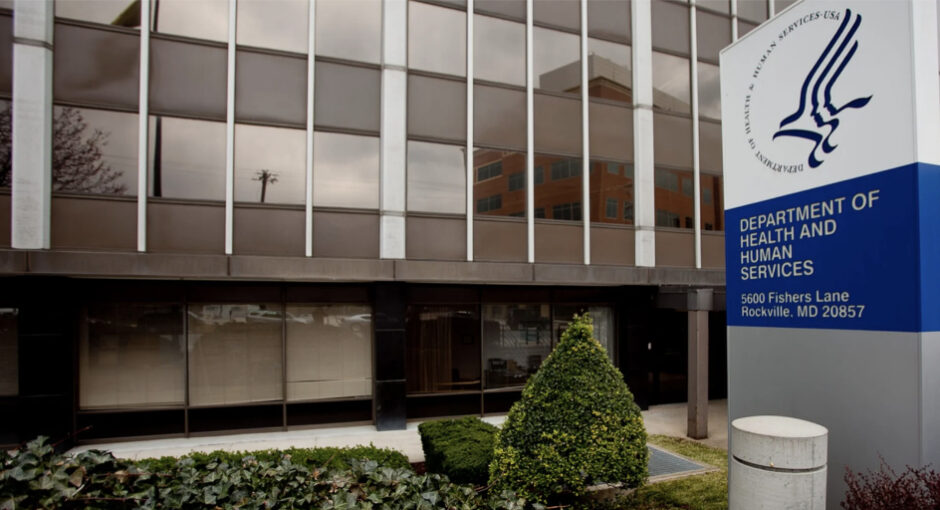Federal health officials told drug manufacturers AbbVie and Amgen late yesterday their restrictions on 340B pricing when providers use contract pharmacies are illegal and must end or the companies could be fined.
The Health Resources and Services Administration’s last 340B program violation notice to a drugmaker that restricts 340B pricing when entities use contract pharmacies was in June, to Belgian company UCB.
Eighteen manufacturers have such policies. HRSA has sent violation letters to 11. It has referred seven to the Department of Health and Human Services Office of Inspector General for possible imposition of civil monetary penalties of up to $6,323 for each instance of overcharging. 340B Report broke the news late last month that the OIG is waiting for federal appeals courts to rule on the legality of HRSA’s program violation notices before deciding whether to impose any fines. Three federal circuit courts are expected to issue rulings early next year.
Amgen’s 340B pricing restrictions took effect in January and AbbVie’s in February. HRSA posted its violations letters to Amgen and AbbVie on its website.
HRSA gave both companies until Nov. 18 to submit plans “to restart selling, without restriction, 340B covered outpatient drugs at the 340B price to covered entities with contract pharmacy arrangements.”
As it did in its prior violation letters, HRSA said in yesterday’s letters that the 340B statute’s requirement that manufacturers shall offer covered drugs for purchase at or below the 340B ceiling price “is not qualified, restricted, or dependent on how the covered entity chooses to distribute the covered outpatient drugs. Nothing in the 340B statute grants a manufacturer the right to place conditions on its fulfillment of its statutory obligation to offer 340B pricing on covered outpatient drugs purchased by covered entities.”
“HRSA has made plain consistently since the issuance of its 1996 contract pharmacy guidance that the 340B statute requires manufacturers to honor such purchases regardless of the dispensing mechanism,” the letters say.
HRSA said if a manufacturer is concerned about provider’s compliance with 340B requirements, per the 340B statute it “must (1) conduct an audit, and (2) submit a claim through the Administrative Dispute Resolution process.”
“The 340B statute does not permit a manufacturer to impose industry-wide, universal restrictions,” HRSA said.
Federal district judges have issued mixed decisions on whether pharmaceutical manufacturers may impose conditions on access to 340B pricing in the contract pharmacy setting. Hearings before federal appeals courts in three crucial cases take place in the next month. The first one—Novartis and United Therapeutics’ consolidated suits against the federal government—is scheduled for this coming Monday, Oct. 24 before the U.S. Court of Appeals for the District of Columbia Circuit.
Amgen Comment
A spokesperson for Amgen said this morning:
“Amgen is committed to working to ensure that the 340B program is administered in keeping with the statutory requirements and that the savings realized from discounts to covered entities benefit them and their patients.”
“The company is concerned with the well-documented issues about program integrity arising from expansion of contract pharmacy arrangements in recent years,” the statement continues. “In the decade since the Health Resources & Services Administration (HRSA) expanded its contract pharmacy policy, the number of contract pharmacy arrangements in the 340B program has grown by a staggering 4,000%. More than 50% of the profits generated by contract pharmacies are retained by for-profit companies, diverting resources from federal grantees and other covered entities that provide care to uninsured and vulnerable patients. Amgen believes the 340B program needs to ensure all stakeholders do their part to see that the intended beneficiaries of the program—safety net providers and their patients—are receiving the benefits of 340B discounts and is taking proactive measures towards that end. Amgen will continue to work with the administration, policymakers and the biopharmaceutical industry to ensure the program is executed in a way that benefits patients, the safety net and the healthcare system as a whole.”
Abbvie did not immediately respond to a request for comment.


